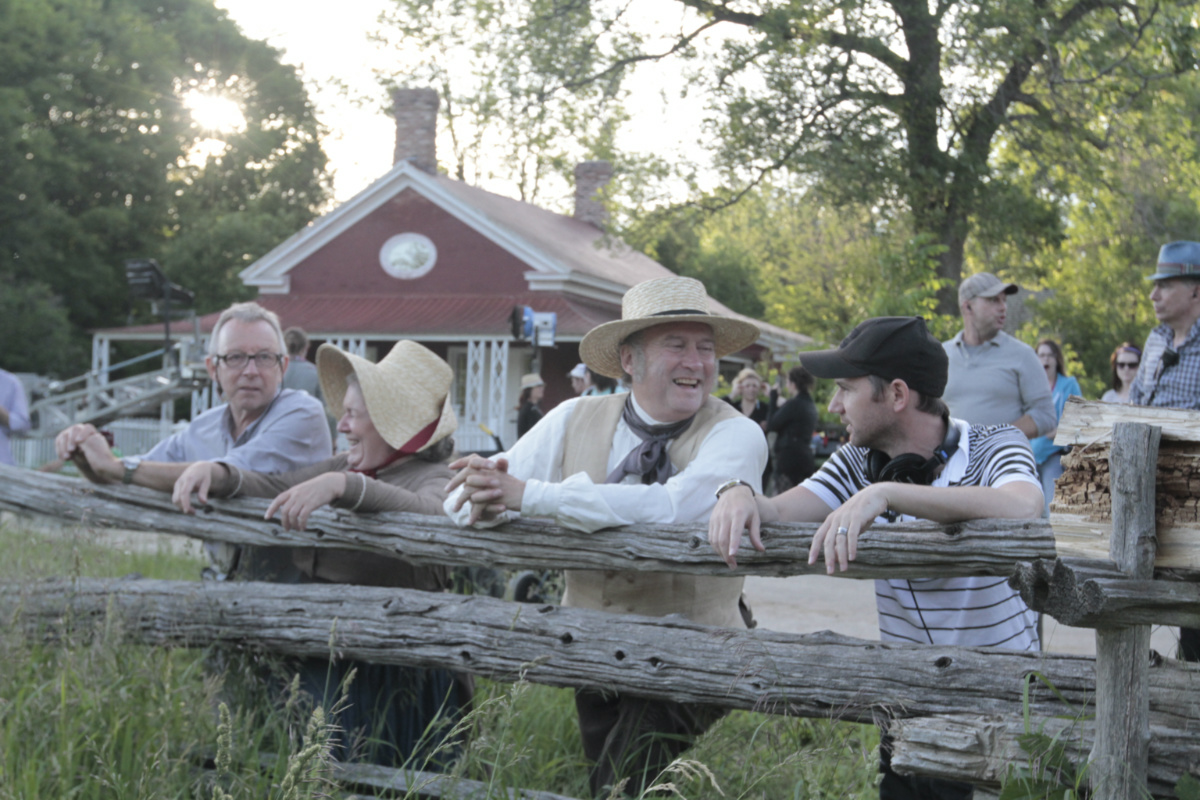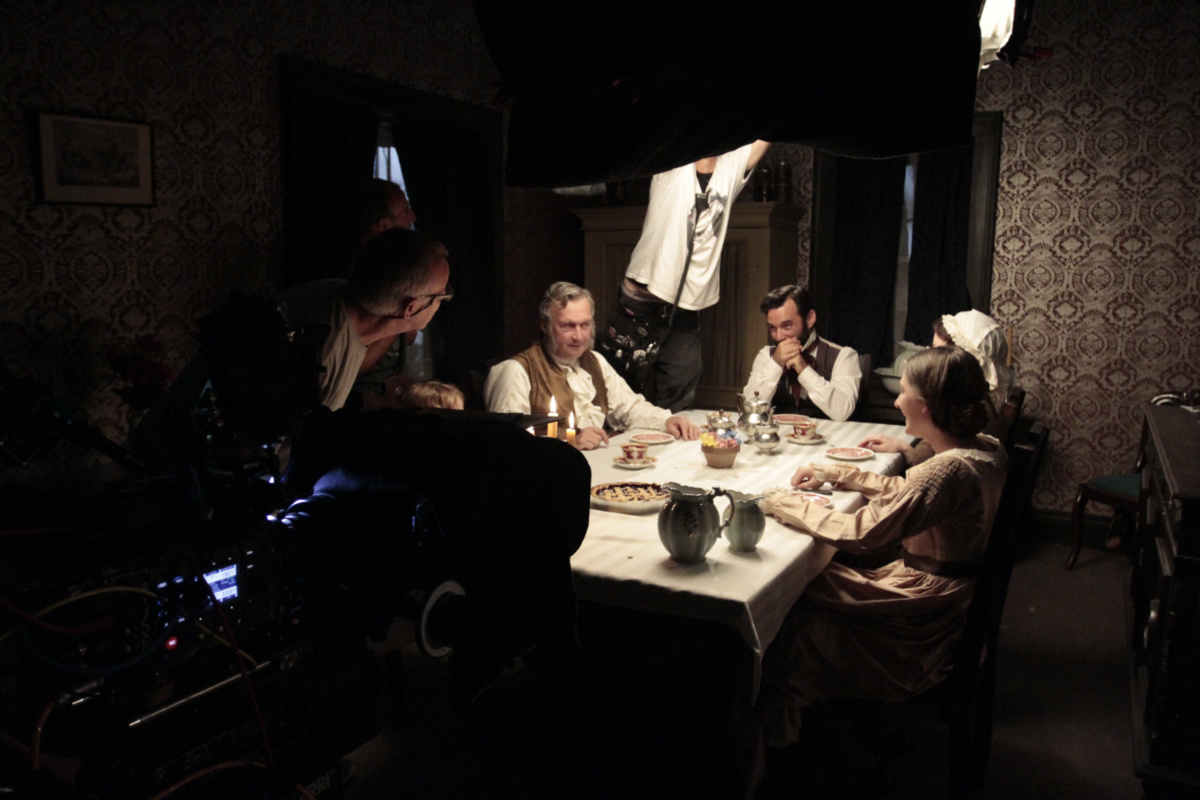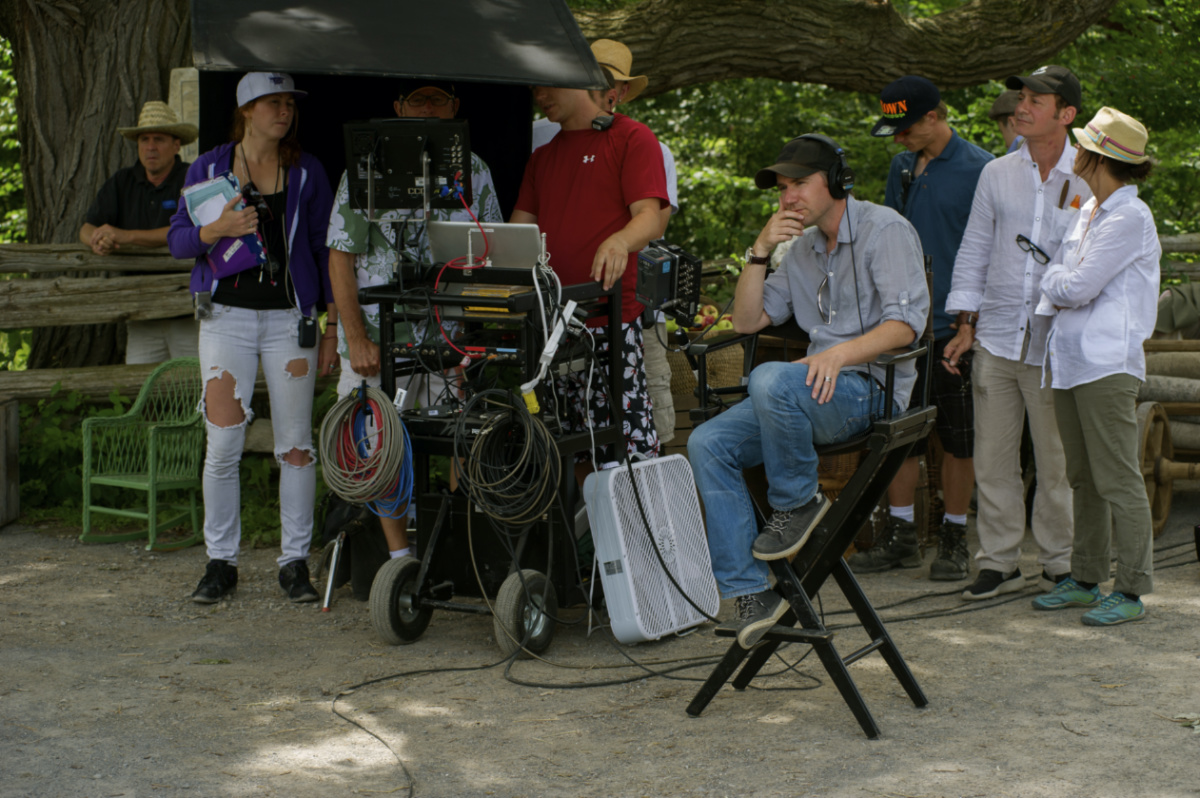
PETA MCCARTNEY speaks with Australian director Kyle Portbury about his upcoming film on events in New England in the US in the mid-19th century…
Through the ages, stories and predictions of the second coming of Jesus Christ have abounded, but the world, and most ardently Christians, are still waiting.
Scripture clearly says that “not even the angels” know the time of Jesus’ return, yet dozens of mortals with fervour and conviction have held firm to their beliefs that they possessed the key to this knowledge – and then preached it.
One such story, set in New England in the United States in the mid-1800s and commonly known as the “Great Disappointment”, has been filmed for the big screen by Australian director Kyle Portbury. Advent Hope tells the story of Baptist preacher William Miller’s predictions of the Second Coming in 1844 through calculations based on Daniel 8:14. It never happened.
But the failure of Miller’s prediction gave rise to the birth of the Seventh-Day Adventist Church, of which Portbury is a member, among tens of millions of adherents around the world.
“What fascinated me about the Great Disappointment is, you’ve got 17 million people in America in this period of history and there was about 1.5 million people who were actively going, ‘This is going to happen’, which is a huge proportion of the then population of [the] continental US. If you looked at it in today’s terms, you’re probably talking close to 50-60 million people, comparatively, going ‘This is a legitimate thing that I believe is going to happen’,” he said.
“Because it didn’t happen, it’s probably why it’s been largely forgotten by history.”

Director Kyle Portbury with actor Bill Lake on the set of Advent Hope. PICTURE: Supplied.
Much of Advent Hope was filmed more than five years ago, at the same time Portbury was making Tell the World, commissioned by the SDAC.
“I said to them while we were shooting it [Tell the World] that I could actually shoot a completely different film at the same time, utilising about half the stuff differently to what they had done [and] shooting a whole bunch of different material that focuses on that Great Disappointment,” Portbury said.
“What’s interesting to me about it really is…what’s driving it [the prediction of the Second Coming] I think it’s because it is genuinely hope that’s driving it, rather than fear, it’s quite a unique end-of-the- world scenario.”
– Kyle Portbury.
“What’s interesting to me about it really is…what’s driving it [the prediction of the Second Coming] I think it’s because it is genuinely hope that’s driving it, rather than fear, it’s quite a unique end-of-the- world scenario.”
He said it was fascinating for him as a director and story-teller to go deeper into how the characters “missed” the Scriptures which state no-one knows when Christ will return.
“It’s fascinating that they missed that. I think that’s what makes me interested in what is it that blinded them to that – because it’s clearer that ‘no man knows the day or the hour’, right? than it is, ‘you’ve been able to piece together prophetic timelines’,” he said.
Portbury said interestingly, Miller never settled on a specific date, but got “suckered into the fervour of marketing”.
“I think it’s fascinating. His hope that Christ was going to show up, married with the excitement of some really good marketers…he gets almost blinded by the marketing goodness. There’s a really fascinating thing about human nature that you’re able to pose to people in this storytelling. You’re not saying that you agree with what they’re doing or disagree; I think it’s just interesting how people get swayed into [something]; they get swayed because of a positive thing. It’s a hope.”
He said many similar events about end times were and are largely driven by the fear of chaos and the breakdown of society, rather than the hope that the character of Christ “who we’ve gravitated towards” is going to show up.
“I think that’s why I was interested more in the actual Great Disappointment side of it [than Tell the World]. It’s that character – the people involved – what drove them Hope-wise, rather than [the] fear, because the fear for them was getting kicked out of their home churches.”

A scene from Advent Hope. PICTURE: Supplied.
Portbury admits his career in the entertainment industry is unusual for someone from his faith-background.
He grew up in a traditional Seventh Day Adventist family in the small town of Warburton, east of Melbourne – the capital of the Australian state of Victoria – watching his first movie in a cinema in his late teens. It was Finding Nemo.
“Certainly going into entertainment as a career was not even a thing then. Like, no one I knew did it. There’s a mystery that is almost a barrier to entering, because nobody does it,” he said.
It wasn’t until he and his wife were living in London in the mid-2000s, when he was three months into a teaching job, that he realised he had “made a mistake”.
“I didn’t want to teach in comprehensives [schools] in London – it was too hard and I am too small, I’m not a bouncer, so teaching in inner-city London schools was not my spiritual gift. So I went, ‘oh I’ll go and be an actor, because I liked drama in school’,” he said.
It was his acceptance into the Drama Centre, one of the top performance conservatoriums in London, that “kicked me along this path”, supported by his “poor long-suffering wife” who sacrificed buying a Moped so they could finance and support his new career path.
“She was more disappointed in that, than me not working for two-and- a-half years and poncing around in tights,” he said. “That’s really where my love of cinema got sparked, because they dive you deep into the history of cinema during that. Your entire life is lived and breathed around classic performances, both on screen and on stage.”
There followed a career that has taken him across the globe, most recently to the United States and Cape Town, and in a range of genres, from live action to animation, including winning an Emmy Award in 2018. “It’s that inquisitive nature I have that I like exploring why people do the things that they do”.
This included people like former slave-turned rights activist and anti-slavery advocate Sojourner Truth, whose speech on the rights of women in the mid-1800s he made into a movie, which earned him his Emmy Award.
“I am interested in people who basically go down the torpedoes – [they say] ‘I feel so convicted about this that I am going to do this regardless of the personal cost’. I am really fascinated by that. I really like trying to pull the threads of what makes them tick and why they would do those sorts of things. I am provoked by that; I am challenged by it. I find that people that can put aside the personal cost for a cause really inspiring. That tends to be a common thread in the stories that I tell.”

Kyle Portbury in the director’s chair on the set of Advent Hope. PICTURE: Supplied.
Another person whose life fascinated him was US soldier Desmond Doss, whose actions were depicted in the film Hacksaw Ridge. Doss refused to bear arms in World War II, but earned the Congressional Medal of Honor after he saved 75 men in the Battle of Okinawa without firing a shot.
Portbury says Doss spoke at his church once, describing him and others like him as “venerated characters”, but for him, it was more a question of wondering why people like Doss did such amazing things.
“I am sitting here going, ‘Well, I wouldn’t do that’,” he says. “I like picking at why a certain faith background would prompt you to do something, but in the same faith background, challenged by that, maybe someone else wouldn’t do it, so what is unique about that person because it’s not that they’re Adventist and I’m Adventist [that’s] why he’s running into live fire and dragging people out, because there are plenty of Christians in that scenario that were running in the other direction; plenty of atheists running in the other direction; plenty of Adventists running in the other direction.”
After giving an assurance to the SDA church he would wait five years after the release of Tell the World before using his footage for Advent Hope, Portbury says “now” seems to be the right time to refocus on the project he envisioned all those years ago, and he is working hard to raise its profile and more than $US277,000 for post-production.
“Now seems to be a really interesting time to re-evaluate people who looked at end-time events quite differently,” he says. “I am a a lifelong Adventist, but I also like to look at these people in the cold hard light of day, because they are just regular people. When you take them out of that venerable light, I think it’s fascinating to challenge our perceptions of the role that they played in where we are today as a movement. I think that’s very healthy actually.
“It’s interesting to me in the sense that…you look across Christianity at the moment, there’s quite a big ‘fear factor’ of stuff – particularly around Coronavirus – you’ve got a lot of fear driving the fervour for ‘this could be the end of times’, right? Whereas, what was interesting about the Great Disappointment (it comes out of an era called the Great Awakening in the United States) and the fervour was actually – Miller particularly saw something in the character of Christ and went, ‘Well, this is amazing; how have I never even heard of this before?’ and ‘I am reading into prophesy that he is coming – potentially, this all ends in this period of time’.”
He said telling the story of that “fervour born out of hope rather than fear” was driving him to finish the movie.
“I think that’s really valuable, more so probably than ever right now. That’s why I revisited that film that is sitting there waiting to be finished. Now seems to be a really interesting time to reevaluate, I guess, people who looked at it, at end time events quite differently.”





